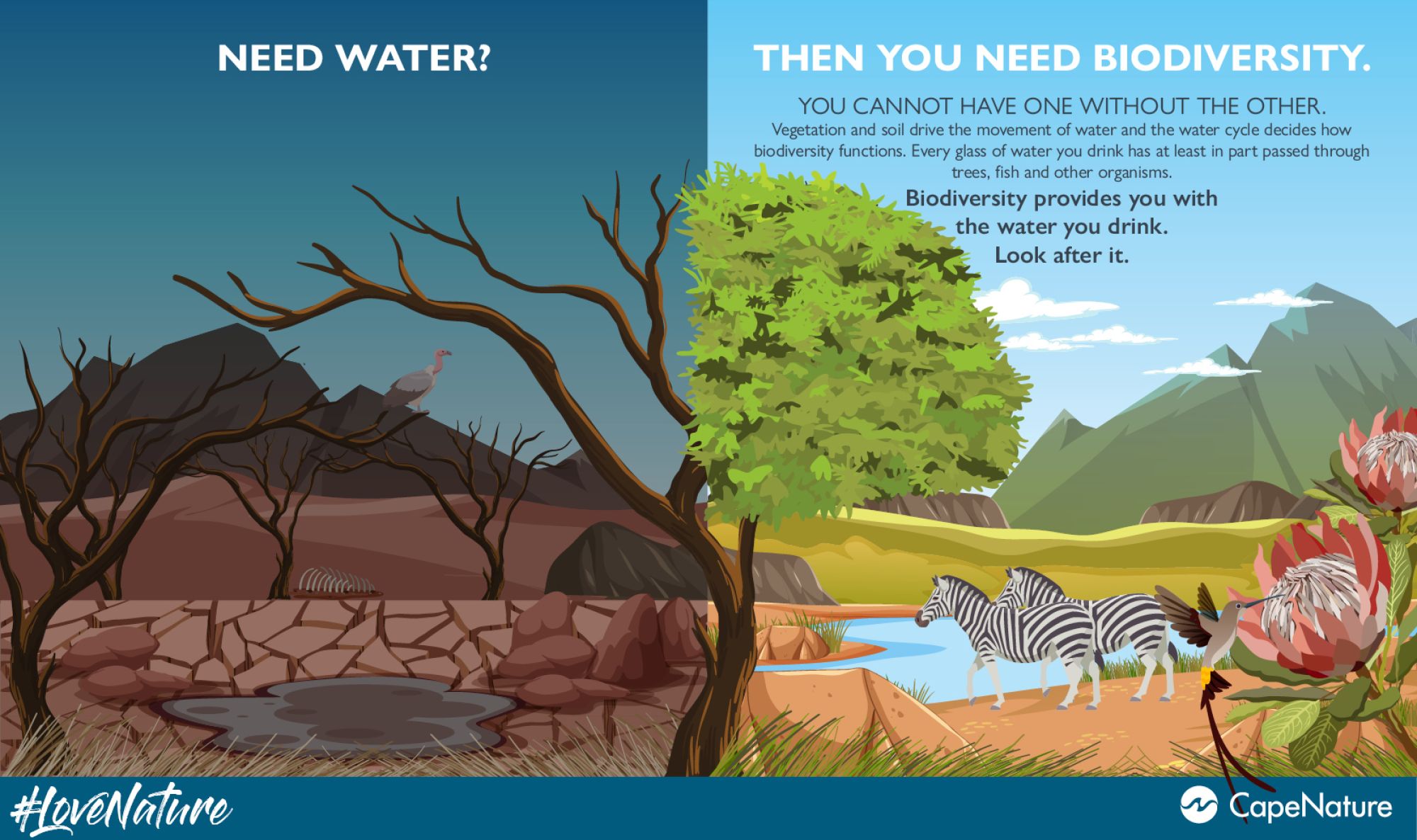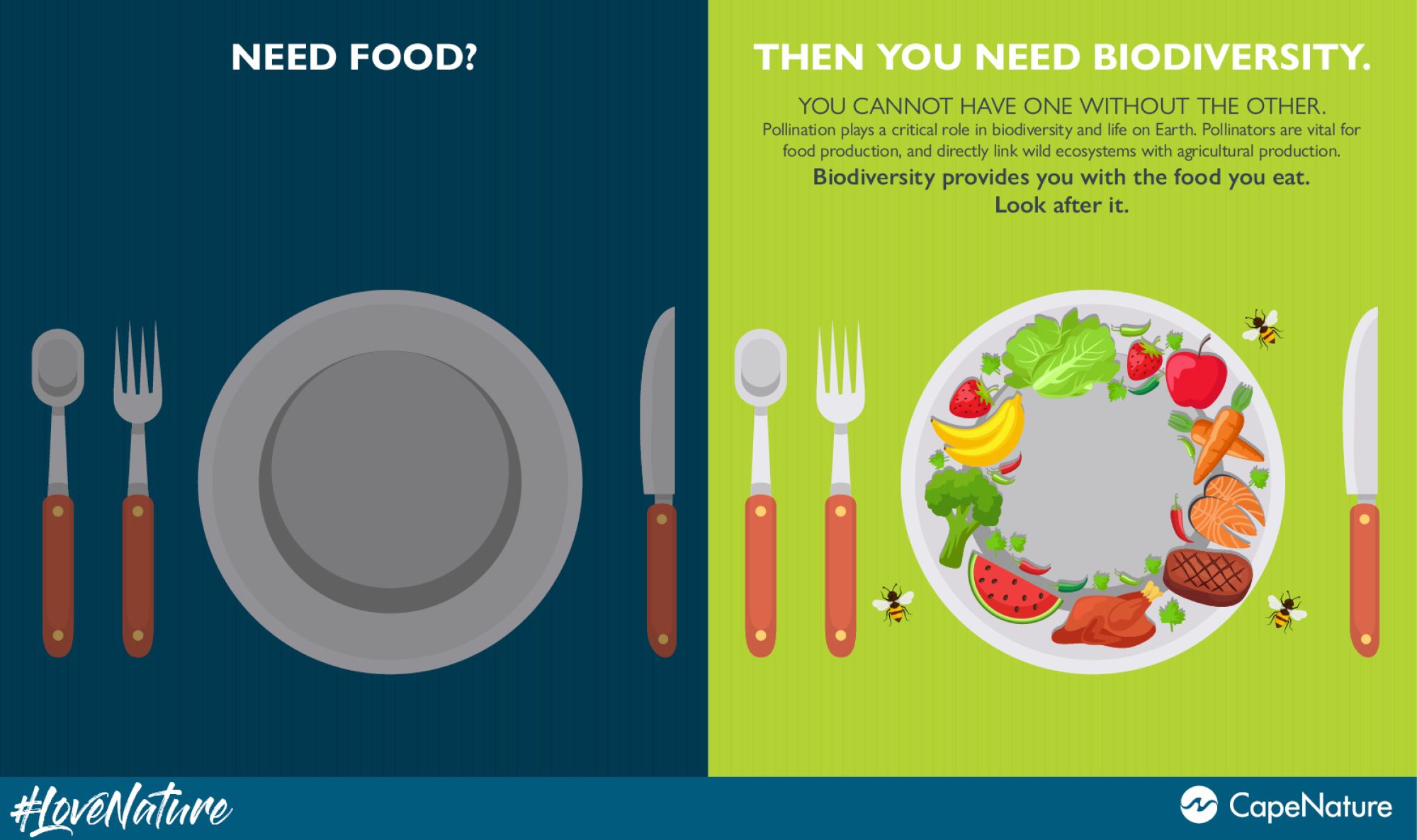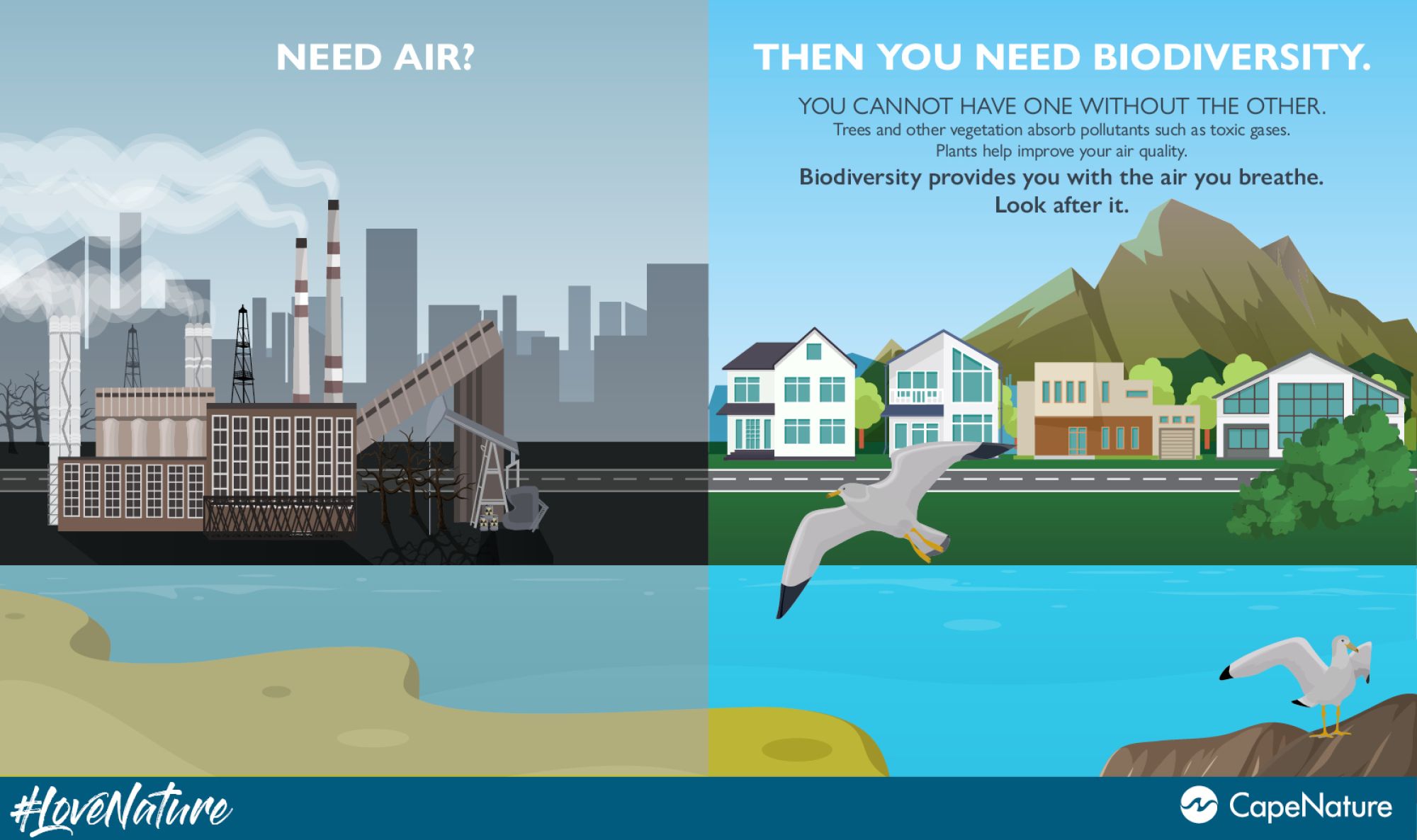
Unveiling the Critical Role of Biodiversity: Why We Need to Preserve It as an Essential Service for Our Survival
On the 22 May annually, we celebrate the International Day for Biological Diversity to raise awareness about biodiversity and the issues surrounding it. The day aims to highlight effective strategies that can help protect biodiversity. This year, CapeNature celebrates by highlighting the importance of biodiversity an essential service.
Biodiversity, the variety of life on Earth, is essential to our well-being and the health of the planet. It gives us access to food, medication, clean water, and materials for clothes and housing. However, due to human activities such as deforestation, pollution and climate change, a sharp decline in biodiversity is being observed around the world. The ability to provide for people's fundamental needs is seriously threatened by biodiversity loss, which also reduces ecosystems' capacity to withstand climate change, natural catastrophes, and disease outbreaks.
Do you need water? Biodiversity plays a critical role in providing clean water for human use. Wetlands, forests, and grasslands act as natural water filters, removing pollutants and contaminants from water.
Want to Eat? Our ability to produce food depends on biodiversity. The reproduction of many crops, such as fruits, vegetables, and nuts, depends on pollinators like bees, butterflies, and birds. Pollinators, a component of biodiversity, are necessary to ensure that these crops produce the edible fruits and seeds.
Need Air? Biodiversity is essential for providing the air that we breathe. The oxygen we need to breathe is produced by plants via a process called photosynthesis.
Like healthcare, education, and public safety, preserving biodiversity should be seen as a basic service. We should place a high priority on biodiversity protection as an integral part of our social and economic systems, just as we do with investments in these fundamental services.
The world's population and the environment stand to gain significantly from investments in biodiversity protection. As an illustration, maintaining natural ecosystems may enhance food security, preserve clean air and water, and assist to reduce the consequences of climate change by lowering carbon emissions and raising carbon sequestration.
Everyone can contribute to protecting and conserving our biodiversity.
- Purchase sustainably produced goods from your neighbourhood farmer.
- Plant local trees, flowers and vegetation
- Encourage community-based efforts to preserve, restore, and research nature, such as coastal clean-ups.
- Don'tBeTrashy- reduce, reuse, and recycle.



Related News
How can I assist you today?
How can I assist you today?



